Last Updated on December 15, 2024 by Larious
Like Android phones, your iPhone also has features that track your location. Due to this, you are able to see where you were last week or the past month.
However, if you’re very new to the iPhone, you may find it difficult to find your location history. Hence, we came up with this article explaining how to find location history on an iPhone.
Table of Contents
Finding your location history on iPhone
While we have used an iPhone to demonstrate the steps, these steps also apply to iPads. Here’s how to check your location history on an iPhone.
1. To get started, launch the Settings app on your iPhone.
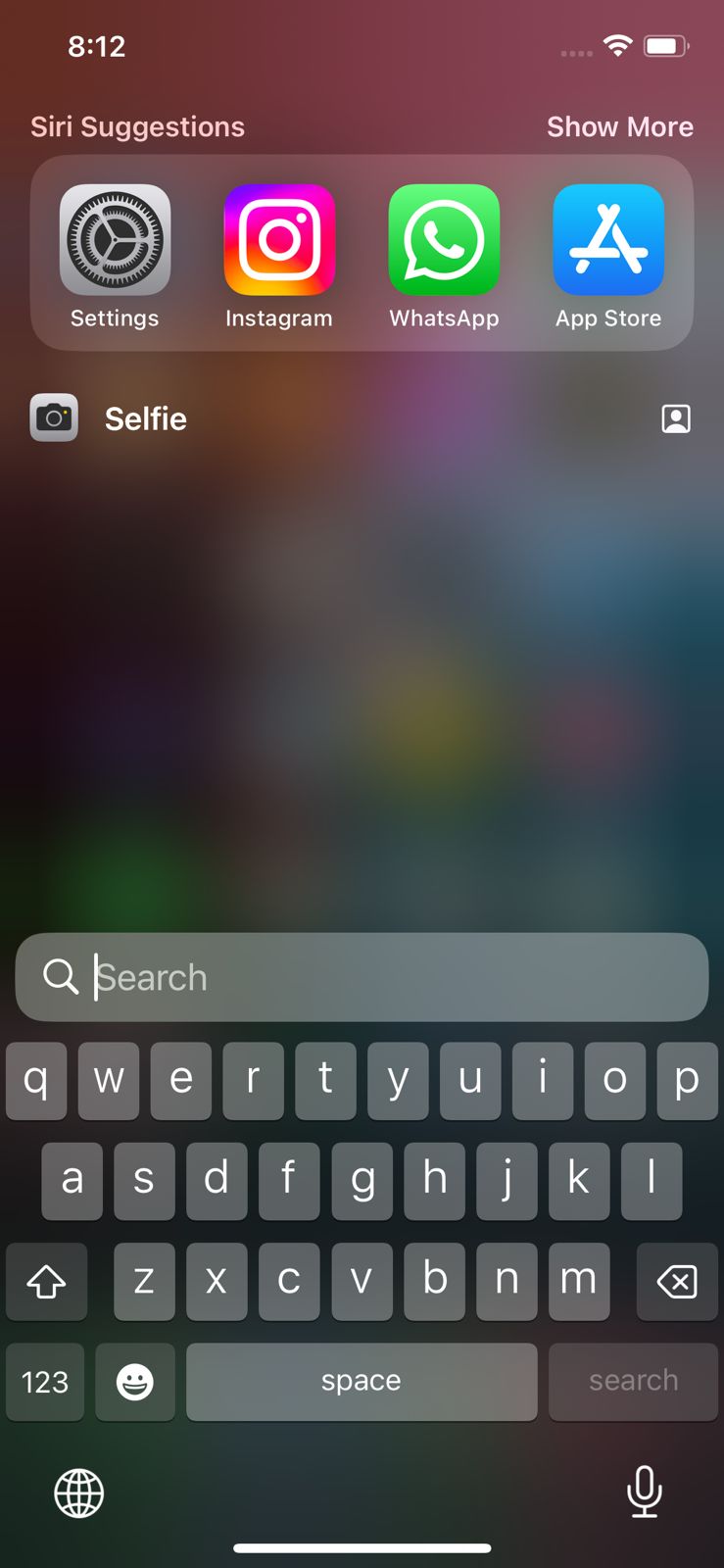

2. When the Settings app opens, switch to Privacy & Security.
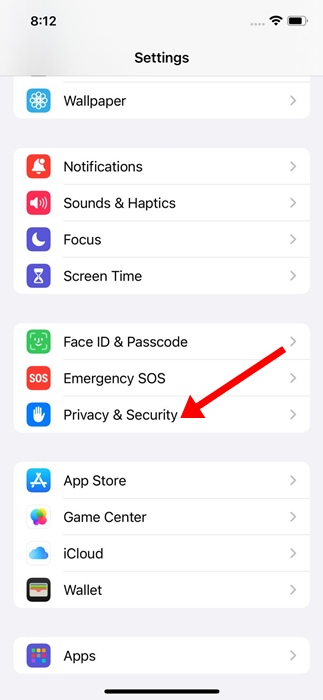

3. On the next screen, tap on Location Services.
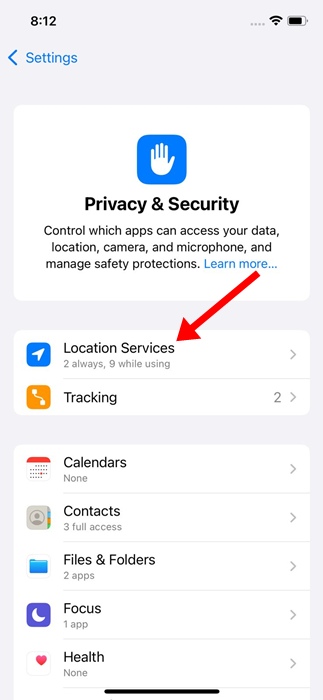

4. On the Location services, scroll down a bit and tap on System Services.
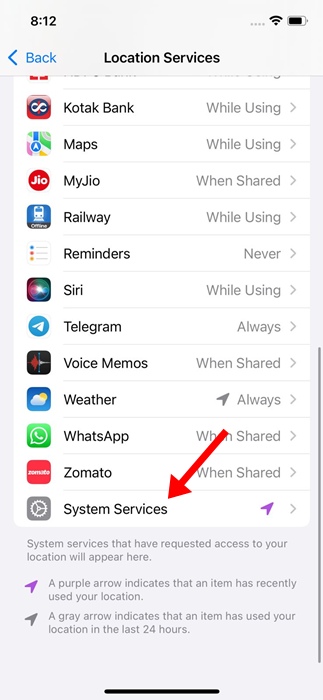

5. On the System Services screen, tap Significant Locations and enter your iPhone PIN or Passcode.
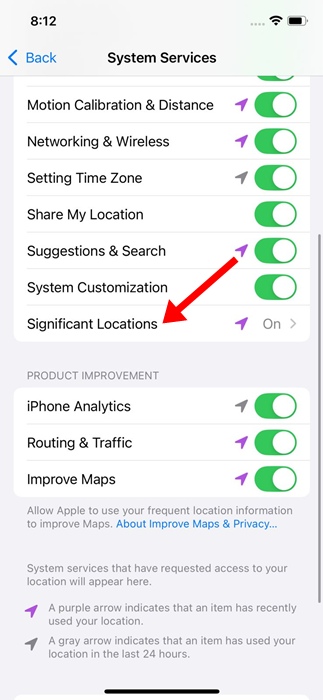

6. On the next screen, you will see both the Recent Locations and the Summary. This screen will present information about your previous locations.
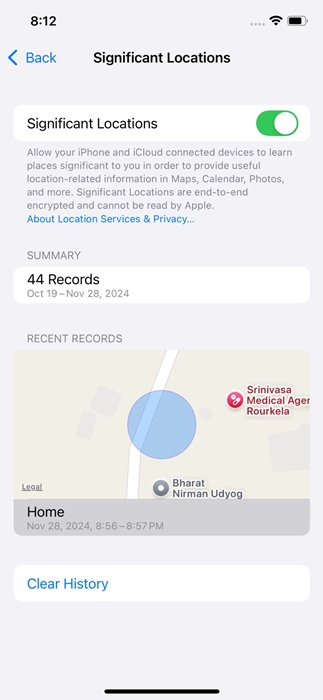

How to Disable Location History on iPhone?
If you wish to disable the location history, you need to turn off the Significant location feature. Here’s what you need to do.
1. Move to the Significant Locations and enter your iPhone PIN or Passcode.


2. To disable the location tracking, turn off the Significant Location toggle at the top.
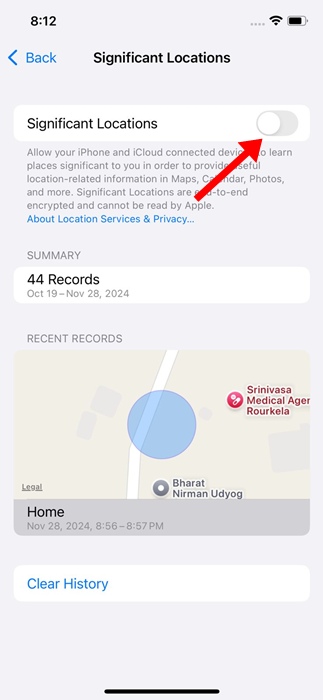

3. To delete your location history, tap Clear History at the bottom of the screen.
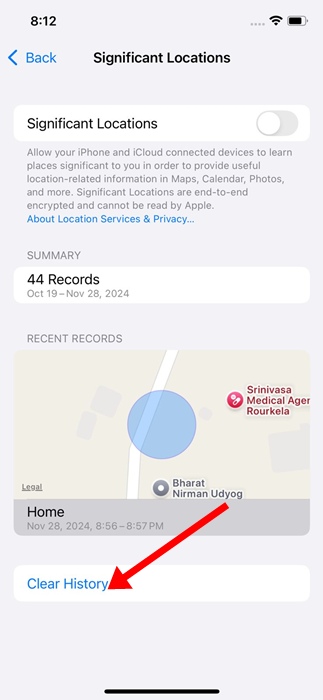

How to Find Your Google Location History on iPhone
If you use the Google Maps app for navigation on your iPhone, you need to follow these steps.
1. Launch the Google Maps app and tap on your profile picture at the top right corner.
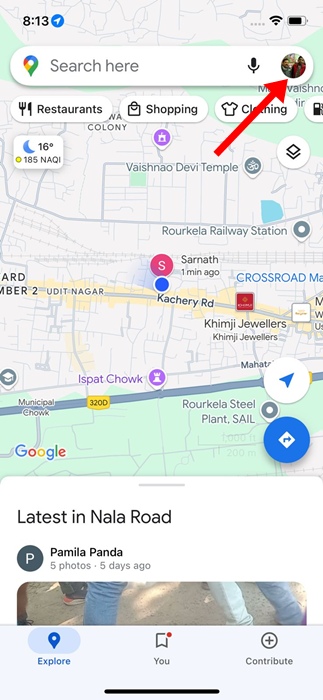

2. On the profile menu, tap Your Timeline.
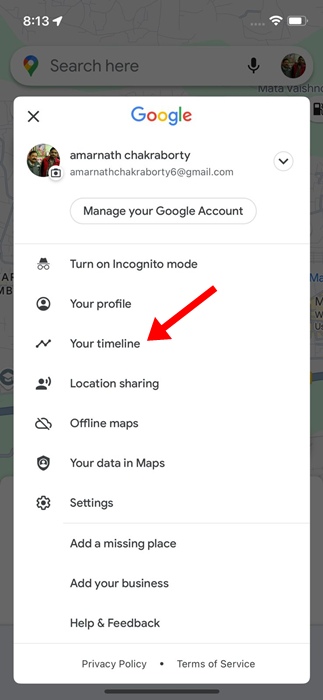

3. You will now be able to see your Location History. Click the drop-down next to Today to select a date.
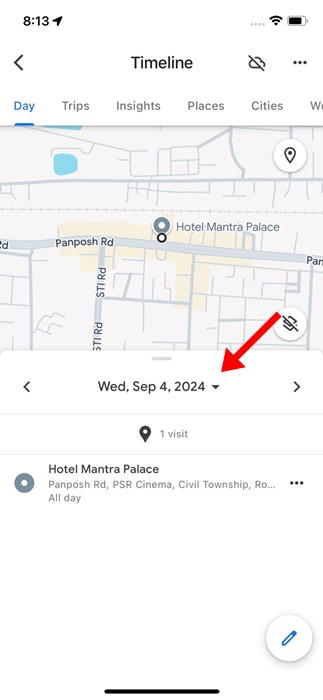

Finding Location History on an iPhone is super easy; you need to know how to access it. The steps we have shared will help you properly manage the location history on an iPhone or iPad. If you need more help with this topic, let us know in the comments.

